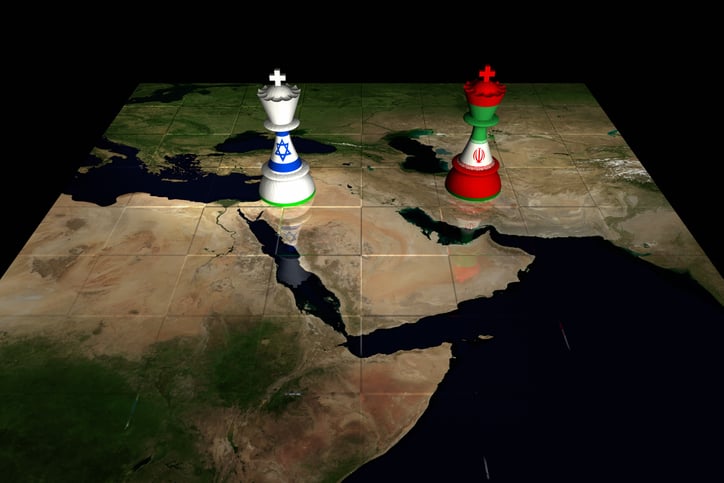The Impacts of a ‘Monumental Shift’ in the Middle East

On Monday evening, President Donald Trump announced a ceasefire agreement between Iran and Israel. As of midday Tuesday, the ceasefire was termed shaky but still in effect, despite claims that both sides have violated the agreement.
Other Monday headlines were conflicting, reporting that Iran would stop attacks if Israel would agree to, that Iran was continuing to fire missiles at Israel, and that earlier in the day, the Iranian parliament had voted to back the closure of the Strait of Hormuz, a major shipping thoroughfare.
No matter the response, the conflict “marks a monumental shift in the regional balance of power across the Middle East that will have a ripple effect for a long time to come,” says Lara Tandy, an associate director and head of Middle East and North Africa at S-RM, a global corporate intelligence and cybersecurity consultancy.
The Logistics Importance of the Region
The Strait of Hormuz, which connects the Persian Gulf and the Arabian Sea, handles one-third of the world’s seaborne crude oil on a daily basis.
Blocking the strait would have a major impact on crude oil heading for Asian markets, Tandy says. It would also negatively impact Iran’s relations with China, which is the largest importer of Iranian oil, she says. According to an Associated Press report, 80 percent to 90 percent of the oil Iran exports is to China. That amounts to more than 1 million barrels of oil and fossil fuels per day.
“Iran has threatened to close the Strait of Hormuz in the past,” Tandy says. “But it hasn’t done so to date.” After the passage from the Iranian parliament, the final decision lies with the country’s Supreme National Security Council. Closing the strait now would be seen as a major escalation in the conflict, she says.
Should the Strait of Hormuz ever be closed, one alternative would be overland shipping. “But that is limited to countries that have routes and the capacity available to the shippers,” she says. Another would be shipping around Africa, a time-consuming and more costly venture.
On Monday, Brent crude oil reached a five-month price high, Tandy says. Prices dropped more than 4 percent Tuesday after Trump — who last month threatened to bar countries buying oil from Iran from doing business with the U.S. — announced on social media that China could continue doing so.
The Balance of Power
For both countries, “the highest stakes are around the impact this conflict has on their political positioning and clout in the region and beyond, which is heavily interconnected to the principles of their regimes and worldviews,” Tandy says.
The regional balance of power across the Middle East, she says, “has been under steady recalibration in the wake of Israel’s operation against Hezbollah in Lebanon in September, its attack of Iran’s ground-to-air defenses in October, and its prolonged targeting of Iran’s senior leadership.”
Tandy continues, “This is unfolding against a backdrop of wider regional change that has left Iran more isolated and with weakened allies, such as Hamas in Gaza and the former Assad regime in Syria.” Iran has also been weakened by many years of international sanctions and high inflation, she says.
From an economic standpoint, it doesn’t to get dragged into a grinding war that could cause a change to its regime, Tandy says. Israel, on the other hand, has been engaged in the Gaza conflict since October 2023; the country is at risk of “fighting two prolonged wars on two different fronts, which may severely rock the economy if these are drawn out,” she says.
Managing the Risk
If it continues, the Iran-Israel conflict could impact global business and the global economy. Costs to insure cargo and vessels are likely to increase, for example with rising geopolitical and/or war risk premiums on shipments to Israel and the Gulf, Tandy says.
Oil and fuel price hikes could impact global supply chains through higher shipping costs as well as availability.
Risk management, scenario planning and other proactive strategies can help companies be ready with options and alternatives should conflict complications occur, Tandy says.
“In such a heightened and volatile geopolitical situation that is rapidly unfolding, companies need to be attuned to updates and recognise that Plan A might very quickly turn into Plan B or indeed Plan C,” she says.

